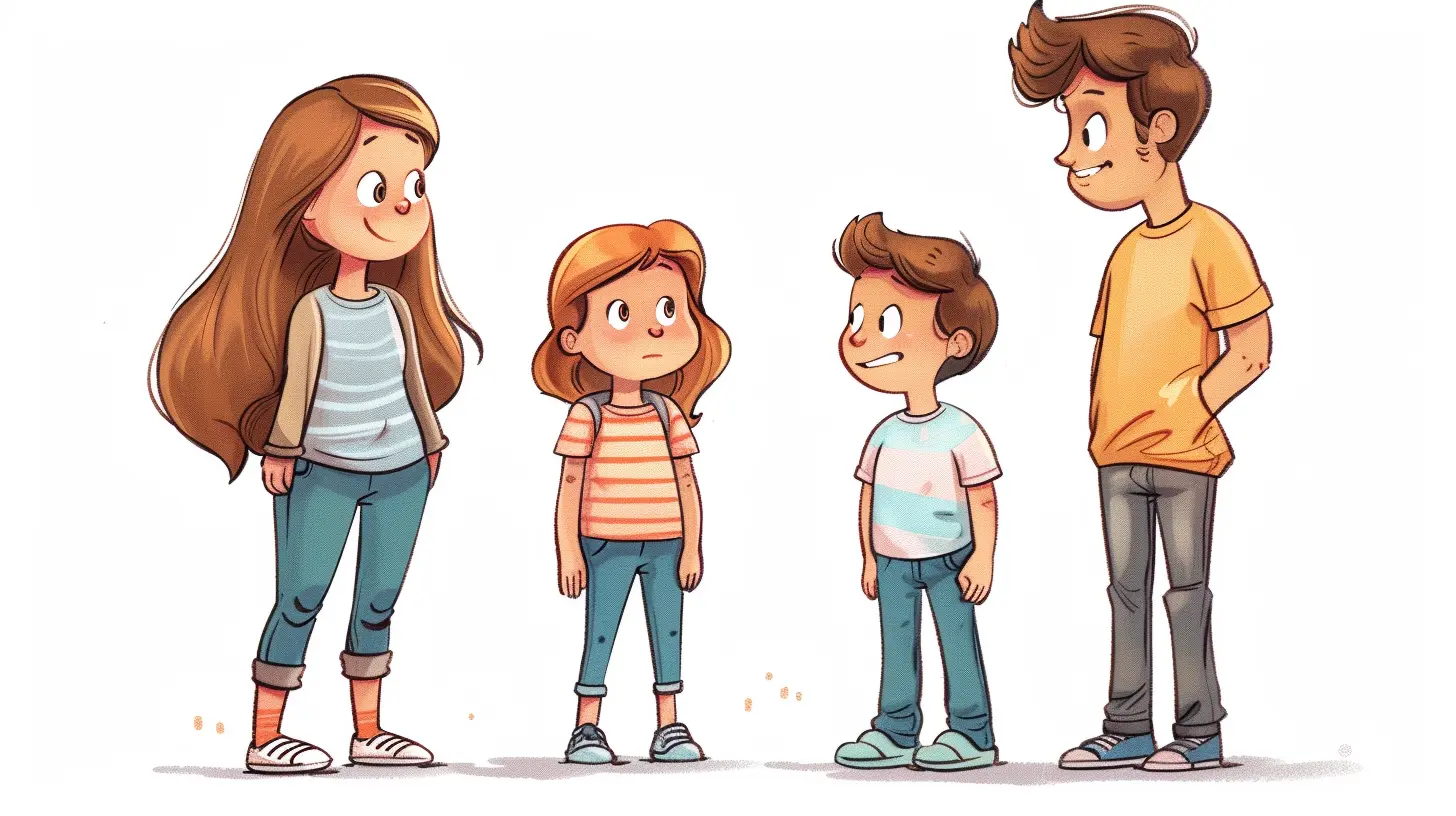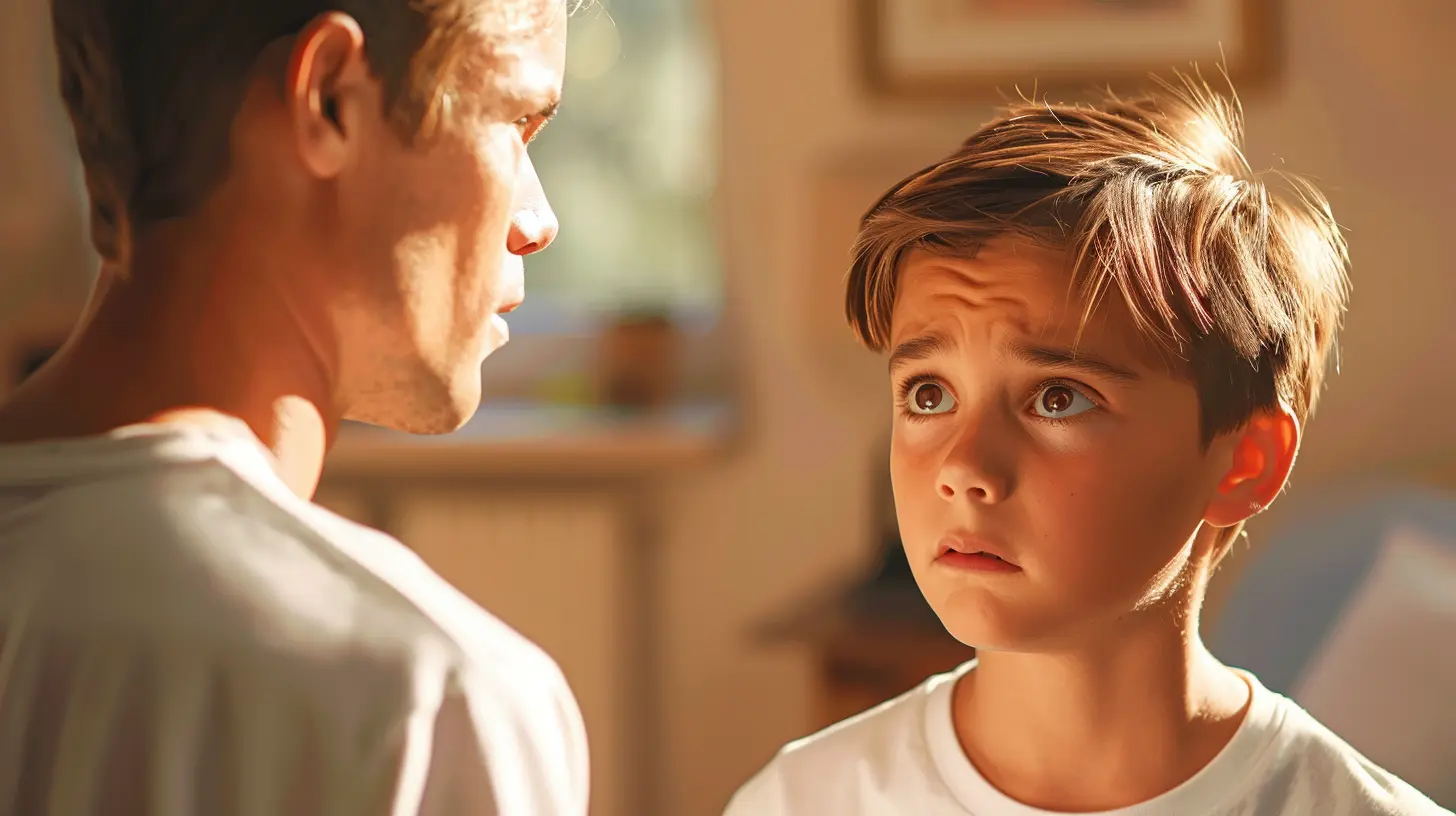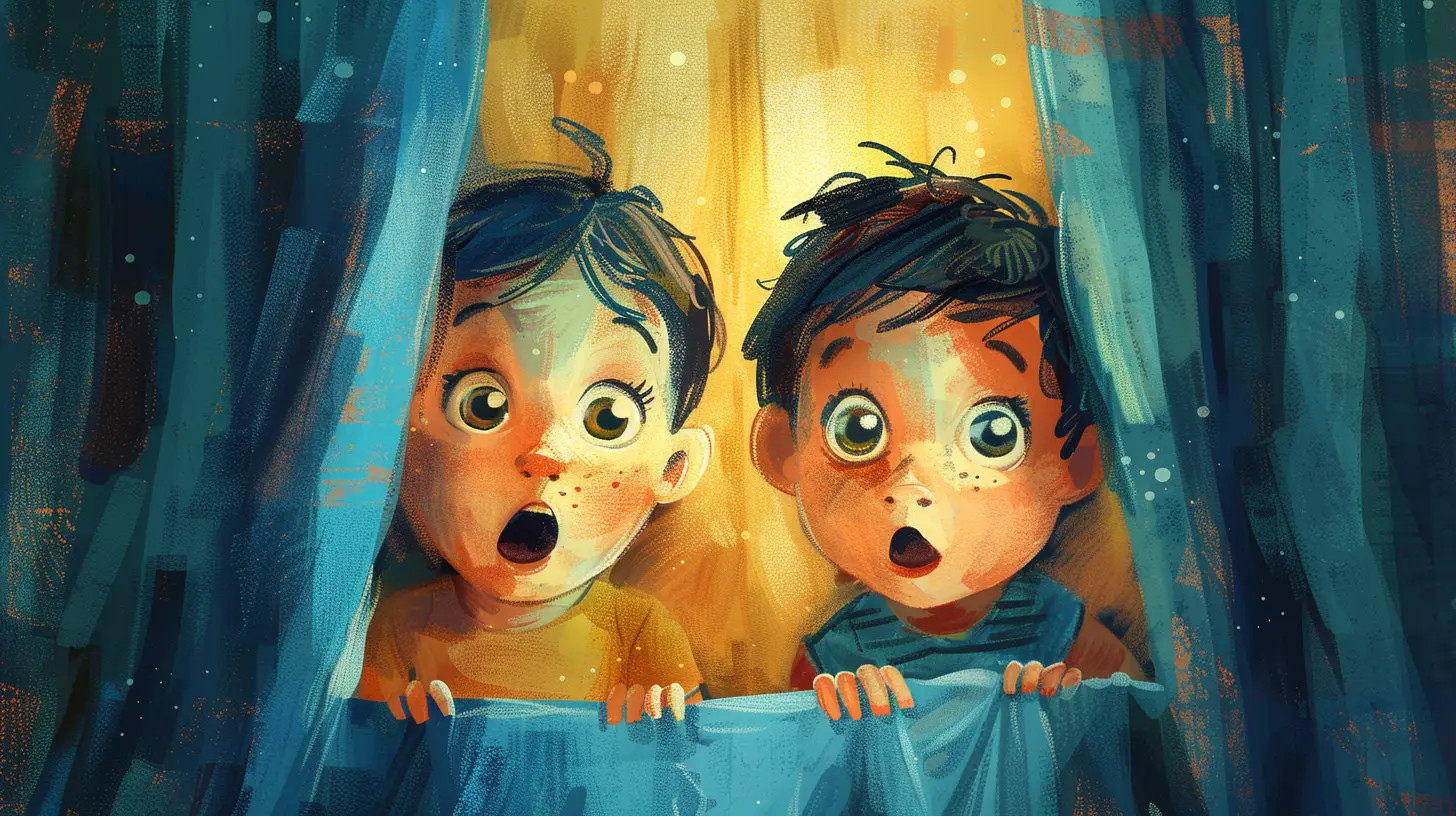Why Sharing Embarrassing Kid Stories Might Be Therapeutic
23 November 2025
Parenting is full of moments that make you laugh, cry, and sometimes want to crawl under a table in embarrassment. From unexpected public outbursts to awkward questions at the worst possible time, kids have a way of keeping us on our toes. But instead of bottling up those cringeworthy experiences, have you ever considered that sharing them might actually be good for your mental health?
Believe it or not, talking about those mortifying moments can be therapeutic—not just for you but for others, too. Let’s dive into why it feels so good to swap embarrassing kid stories and how doing so can foster connection, laughter, and maybe even a little personal growth.

The Emotional Relief of Letting It Out
Nothing is worse than holding onto a moment that made you want to disappear. Maybe your kid loudly asked why Grandma’s wrinkles look like a "crinkly paper bag" or announced to a room full of strangers that Mommy toots in her sleep.When these moments happen, your face turns red, and you feel like you’ll never live it down. But the truth is, the more you dwell on it, the heavier it feels. Sharing those experiences lifts that weight off your shoulders.
Why Bottling It Up Isn’t Healthy
Keeping embarrassing stories to yourself can create unnecessary stress. You replay the moment in your mind, cringing every time, but talking about it helps process that discomfort. Think of it like releasing steam from a pressure cooker—if you don’t let it out, eventually, it’ll explode.When you tell a trusted friend or fellow parent about what happened, you’re acknowledging that moment instead of letting it fester. And more often than not, the person listening will laugh, reassure you, and might even one-up you with an even crazier story. Suddenly, it’s not that bad anymore.

Laughter is the Best Medicine
You know that feeling when you’re laughing so hard your stomach hurts? That’s your body releasing endorphins, those feel-good hormones that reduce stress and boost your mood. So when your child calls out "Mommy, why does that man have a giant nose?" in a dead-silent elevator, and you share the story later, you're allowing yourself to turn that cringe into comedy.The Science Behind Laughing Off Embarrassment
Humor is a powerful coping mechanism. Researchers have found that laughing at embarrassing moments helps reframe them into something positive. Instead of dwelling on humiliation, transforming those situations into funny anecdotes makes them easier to handle in the future.Besides, when we laugh at ourselves, we become more resilient. After all, parenting is filled with chaos, and sometimes, all you can do is laugh to keep from crying.

Fostering Connection with Other Parents
Nothing builds camaraderie faster than bonding over shared struggles. When you open up about the time your toddler removed their diaper in the middle of a fancy restaurant, you’ll be amazed at how many parents have been in similar situations.Why Vulnerability Builds Stronger Bonds
Being open about your experiences makes you more relatable. If you only show the polished, picture-perfect side of parenting, it can make others feel inadequate. But when you share the real, messy, less-than-glamorous moments, you create a safe space where other parents feel comfortable sharing as well.This kind of connection is invaluable. Parenting can feel isolating at times, and knowing you’re not the only one whose kid decided to lick the grocery store floor is oddly comforting.

Teaching Kids the Power of Perspective
Here’s the thing—kids learn by example. When they see you laughing at your own embarrassing moments instead of agonizing over them, they learn to handle their own mishaps with grace.Building Resilience Through Storytelling
Teaching children that it’s okay to make mistakes, be a little silly, or even have a mortifying moment in public helps build emotional resilience. They’ll begin to understand that one embarrassing moment doesn’t define them.So when they trip during a school play, mispronounce a word in class, or say something totally awkward, they’ll be better equipped to brush it off and move on.
Navigating the Fine Line: Respecting Privacy
While sharing stories can be therapeutic, there’s an important balance to strike. As kids grow, they become more aware of their personal space and boundaries. Posting stories online or sharing them in front of a crowd without their consent may make them feel uncomfortable.How to Share Stories Responsibly
1. Consider Their Age & Awareness – A two-year-old won’t care if you share a funny diaper blowout story, but a ten-year-old might feel betrayed if they hear you talking about an awkward moment they had last week.2. Ask for Permission – If your child is old enough, check with them before sharing a story, especially online.
3. Keep It Light & Good-Natured – Avoid stories that could cause long-term embarrassment or make your child feel bad about themselves.
4. Use Nicknames or Anonymity – If you’re sharing online or with a larger audience, you can keep identifying details vague to protect their privacy.
It’s all about balance—cherishing the humor while ensuring your child doesn’t feel exposed or humiliated.
Turning Parenting Chaos into A Shared Experience
At the end of the day, parenting is one wild, unpredictable adventure. Some moments feel like they belong in a comedy sitcom, others make you question your sanity, but all of them shape the journey.Sharing your most embarrassing kid stories isn’t just a way to relieve tension; it’s a way to turn parenting into a collective experience rather than a solo battle. It reminds us that no one has it all together, and sometimes, the best way to approach those awkward, cringeworthy moments is with a laugh and a shrug.
So go ahead—share that story about the time your kid shouted their latest "fun fact" about bodily functions in the middle of a quiet waiting room. Chances are, another parent has been there too, and they could use the laugh just as much as you.
all images in this post were generated using AI tools
Category:
Parenting With HumorAuthor:

Zelda Gill
Discussion
rate this article
1 comments
Wolf Cross
Embracing our children's funny mishaps not only fosters connection but also lightens the parenting journey. Let's celebrate these moments—they remind us we're all beautifully imperfect!
November 23, 2025 at 4:15 AM

Zelda Gill
Absolutely! Embracing these moments not only strengthens our bonds but also helps us appreciate the joys of parenting's imperfect journey.


